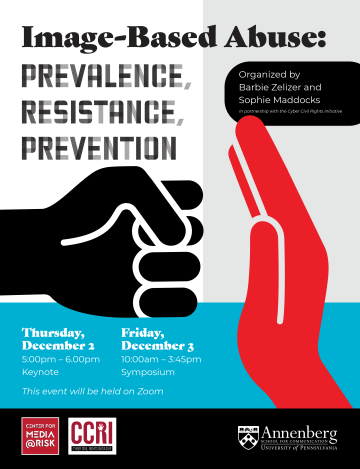Nathan Schneider and I wrote this piece for Noema about Mastodon. To address online harm effectively, we’ll need to learn from transformative justice and restorative justice. How can we scale that? Subsidiarity!
Restorative justice and online harm
Here’s a presentation I gave for The Mint House this month, drawing on my work with Niloufar Salehi, Anna Gibson, and Nathan Schneider.
Restoring justice and transforming online communities
Lately my work has focused on thinking about how it could be possible to design online communities with the principles of restorative and transformative justice.
Rosalie Gillett interviewed me, Tarleton Gillespie, and Leigh Goodmark on these topics for a recent episode of Future Tense:

I’ve also presented parts of this new research at the “Community Driven Governance Online: Past, Present, and Future” workshop, which was organized by the Justice Collaboratory at Yale Law School, at Annenberg’s Center for Media at Risk symposium, “Image-Based Abuse: Prevalence, Resistance, Prevention,” and at the Akasha event “Designing for moderating decentralized social networks.” A recording of my Akasha presentation is available below.
But how does all this scale? Nathan Schneider and I have a draft of a paper grappling with that question, “From Scalability to Subsidiarity in Addressing Online Harm.” Feedback on this work would be very welcome!
Repairing online harm
I recently published an op ed with Niloufar Salehi and Anna Gibson about our project on restorative and transformative justice approaches to online harm.
And here’s Niloufar talking about the project at the Metagovernance Seminar; I pop in for Q&A too:
Sabbatical updates
I have just started a 10-month sabbatical fellowship at the Hanse-Wissenschaftskolleg in Delmenhorst, Germany. In 2020, I will also be an ACLS fellow. This means I’ll be focusing entirely on research from August 2019 through December 2020.

Having just started my first sabbatical, I have to say I agree with Meagan Day’s argument in Jacobin that everyone should have one. This vision is of course even more radical than an academic sabbatical — Day wants us to have time off from all forms of work. Though I do hope to have time to read more novels, watch more TV, and travel more during my sabbatical, I also have lots of grand plans for new research projects.
One of the best things about getting tenure last year is that I feel less need to prioritize first- and single-authored publications. I now feel like I can be more open to hanging out in the middle of an author list, which can take my research in unexpected and exciting directions. While I’ve co-authored before, right now, all 5(!) of the projects I am currently working on are collaborative. One’s nearly in press, others are in the data-gathering phase, another is (hopefully) half-written, and another is merely a glimmer in our eyes and pages of incoherent notes.
Article on revenge porn for Teen Vogue
Just out, a new article I wrote for Teen Vogue on revenge porn: “What to Do If You’re a Victim of Revenge Porn.”
CNN.com op ed on Facebook and revenge porn
I have an op ed on CNN.com today about Facebook’s recent efforts to combat revenge porn.

“Revenge porn” is sexual abuse in a new digital form. A recent study shows that 10% of women under 30 years old in the United States have been victimized by the misuse of their intimate images. Facebook is one of many platforms that host this kind of abuse despite its efforts to tinker with the ways users can report unauthorized content.
This spring, Facebook rolled out a feature allowing users to request that Facebook take down any unauthorized intimate images that are being shared on the platform. And last week, Facebook announced a pilot program for users in Australia to upload nude images of themselves they suspected were being shared without their permission. Facebook would then generate a digital fingerprint of each image so that it couldn’t be shared on the platform.
A better solution would be to give users the power to prevent any images that depict them from ever being posted on the platform.
I’m not sure why, but I was a bit surprised by the low quality of the user comments. Many are victim-blaming (well, just don’t sext then, duh) and others are panicked misinterpretations of free speech. Here’s a good response from user “Dahak:”
Why are so many people confused about the 1st Amendment? It says the government can’t arrest you or penalize you for speaking. Facebook is not the government. Facebook can put whatever restrictions it wants to on its platform. If you don’t like it, don’t use it. If you have a better idea, go build it and popularize it. That is how the free market works.
How to design for consent
Check out the video from my talk at “The Conference” in Malmo, Sweden, September 4, 2017. In this talk, I focus on how designing small barriers in apps and platforms for content distribution might help us do a better job of respecting each other’s privacy.
